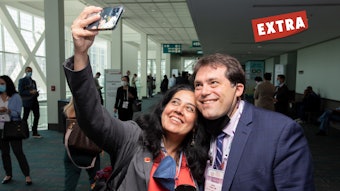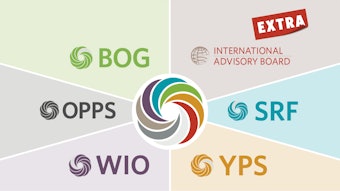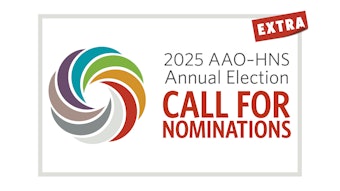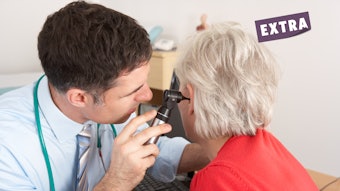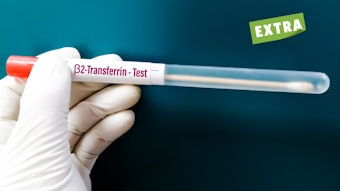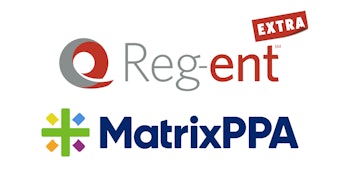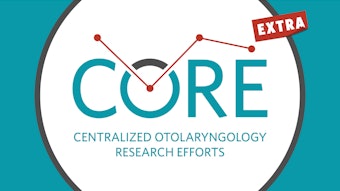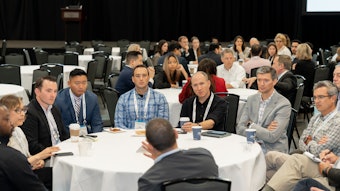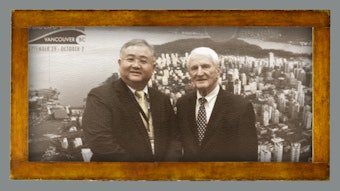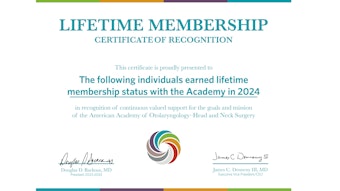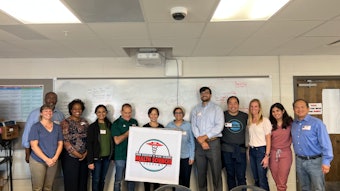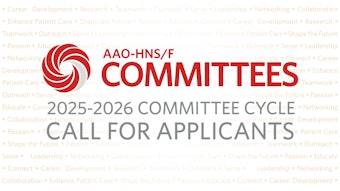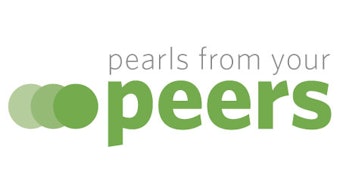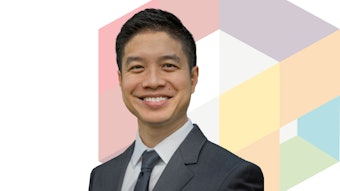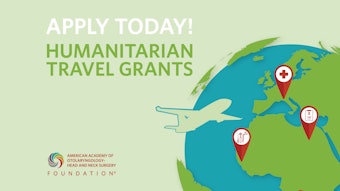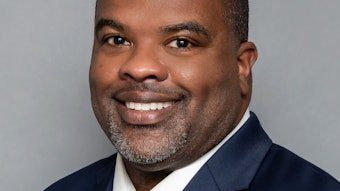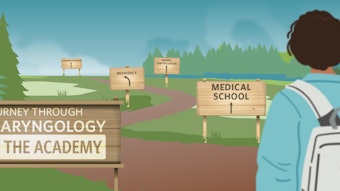The Legacy of Our Annual Meeting and Growth for Reg-ent and the OCC
Reflecting on an energizing 128th AAO-HNSF Annual Meeting & OTO EXPO and looking ahead to exciting upgrades to Reg-ent and the expansion of the Otolaryngology Core Curriculum.
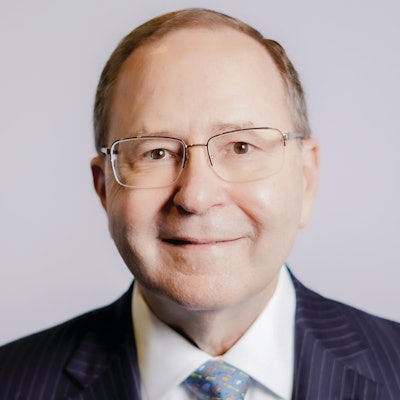 James C. Denneny III, MD
James C. Denneny III, MD
AAO-HNS/F Executive Vice President and CEO
Douglas D. Backous, MD, completed a challenging and exceptional year as your President at this meeting. He deserves recognition for his inclusive leadership in addressing industry and specialty-related issues, championing our advocacy efforts at all levels, helping to move Reg-entSM to the next level, leading a groundbreaking effort to expand access to hearing healthcare in the United States, and working with the Board of Governors (BOG) and our Sections to coordinate efforts on the organization’s behalf.
Observing the attendees at this year’s meeting brought back many memories of my experiences at different stages of my career and how similar they seemed to what I witnessed in Miami. My earliest memories, as a resident and fellow, centered on getting to see and meet the “big names” in person and experience the many lectures and conversations. At that time, there was no Internet, no cell phones, no digital videos or podcasts, and slides had to be loaded individually. There were no apps, and you had to carry a thick printed program with you to find anything.
The excitement and energy of the medical students, residents, and fellows attending today’s meetings, with all the technological advancements in trying to figure out which of the robust schedule interests them the most, is reminiscent of my prior experiences. As a young physician, I was an academician for five years and then a private practitioner. I was worried whether any of my slides were in upside down or backward, excited about who I might meet and network with, energized by the BOG General Assembly, and above all, how much I could learn. Times have certainly changed, but what attracted me to meetings then is still relevant today.
Senior status has not diminished my interest in the previously mentioned attractions, but now I look for truly cutting-edge and different clinical approaches and new devices. Most of all, I enjoy seeing friends and colleagues I have known for years. For the past 10 years, it has been my honor and pleasure to play a small role in continuing the legacy of our organization’s fabulous Annual Meeting.
Investing in the Technological Advancements in Reg-ent
The Foundation Board of Directors embarked on an extensive review of all aspects of the Reg-ent registry. Among the areas of concern was the ability to acquire the complete data sets necessary to maximize the value of participation for you and the specialty itself. Review of available technology to acquire this data made it clear that there had been significant advances since we first started Reg-ent. We conducted an extensive RFP to identify the best vendor with the technical competency to acquire the data necessary to succeed. I am excited to announce that we are transitioning to a new data acquisition vendor, MatrixPPA.
The transition to MatrixPPA brings the cutting-edge technical experience and tools that will allow us to collect the data sets necessary to achieve our initial goals of identifying and defining “best care” for the conditions that otolaryngologist-head and neck surgeons treat through an easier and more reliable process of data extraction. Specific benefits to participants and the specialty, include the following:
MIPS reporting and MVP participation
- Reg-ent participants have repeatedly achieved higher scores than non-Reg-ent users for MIPS reporting, resulting in higher payments from the Centers for Medicare & Medicaid Services.
Payer-related issues
- Reg-ent data can be used to advocate for appropriate global surgery period payment.
- Reg-ent studies and data can be used to refute “experimental” and “investigational” denials for new technology and expanded indications for existing technology.
- We will be able to track debridements and other procedures and develop standards for usage and as comparators to insurer’s claims.
- We will finally be able to create true “outcomes” measures that will be anchors for otolaryngology value-based products using clinical pathways or episode-based models, such as PACES and allow is to be able to accurately determine costs.
- Reg-ent participants will be able to participate in clinical research projects using real-world data to study and improve care and ensure fair reimbursement for their work.
The Future of Education Is Now
The rollout of the Otolaryngology Core Curriculum (OCC) on July 1, 2024, occurred as scheduled as a result of the coordinated, collaborative efforts of the Otolaryngology Program Directors Organization (OPDO) Editorial Board and the Foundation’s team of volunteers on our Education Committees, led by Meredith Merz Lind, MD, Coordinator for Education. The participation of our academic training programs has been well above our projected first-year subscribers with 106 programs and 1,400 residents taking part in the inaugural year of the OCC.
The flexibility and utility of this game-changing education product will also have important value to our private practice physician’s and their staffs including advanced practice providers (APPs). We will be making the OCC available by subscription to practices as both CME and non-CME versions including credit for physician assistances and nurse practitioners. We feel that this will be invaluable to training and retaining staff members at all levels within a practice and improve care delivery.
Plans are also being made to create an Otolaryngology-Head and Neck Surgery Certificate Program for APPs who complete the OCC and clinical training requirements in an otolaryngologist’s office using a similar template to the Certificate Program for Otolaryngology Personnel (CPOP).
Details about both above-mentioned programs will be forthcoming in the near future, and I encourage you to consider taking advantage of these opportunities.
